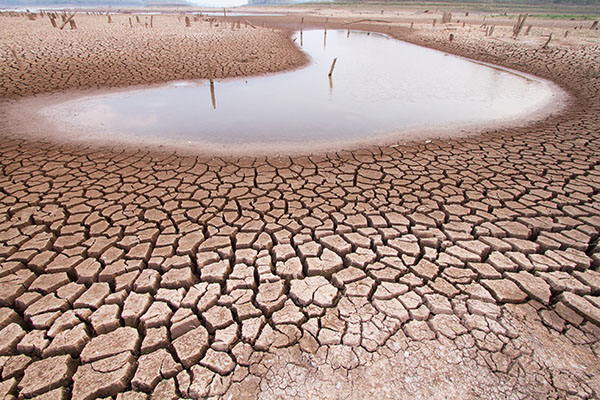
If you're a beginner prepper and are still building a stockpile of your own, you can get started by buying an extra case of bottled water or two. In time, you will have a lot of bottled water in your stockpile, but you need to make sure that even if water doesn't expire, it's still safe to drink when you need it. (h/t to SurvivalSullivan.com)
Does water have an expiration date?
Water that is bottled and sealed commercially doesn't expire, but upon checking you will see that it comes with an expiration or "best by" date. While bottled water doesn't go bad like canned food, over time it will taste strange as it leeches chemicals from its container.
If you store water bottles for a long time and the seal breaks, you may also see algae and other unpalatable but otherwise harmless microbes bloom in the bottles.
But if bottled water doesn't go bad, why does it have an expiration date? Some states, such as New Jersey, have mandated that all food and drink packaged and sold commercially come with expiration dates.
At the same time, manufacturers making products on an enormous scale and servicing a regional or national market will standardize their packaging whenever possible to cut costs and streamline production logistics.
Can you tell if bottled water has gone "bad?"
There's no exact way to tell if bottled water has gone bad, especially since water that is sealed and factory bottled will last for a very long time, but not without exhibiting some changes after it's past the "best by" date. If you have bottled water that's been in your stockpile for a while, you will notice a strange, plastic "taste."
However, this unusual plastic taste doesn't mean the water is no longer safe to drink. Water is a universal solvent, and this means that, in time, it will dissolve or weaken almost everything, even a plastic water bottle.
When you open a water bottle that's been in your stockpile for a long time, the water may taste unusual after chemicals leach from the packaging into the water. These chemicals are also present in greater or lesser amounts in new bottles of water.
According to researchers, these chemicals aren't harmful when consumed in small amounts.
Do open water bottles or unsealed containers of water expire?
The same can't be said for water that is no longer sealed or was never sealed in the first place. When left unsealed, water in a container may be contaminated by different things like algae or bacteria.
If you're stocking up on water stored in large containers, try to consume or dispense "opened" water within two weeks. Any longer and your water supply might be contaminated by various microorganisms.
If you're using a rainwater harvesting system on your property, store water in 55-gallon jugs. For something smaller, get seven-gallon drinking water containers.
Another option is to use 50-gallon rain barrels. Bigger containers will hold more water, but smaller jugs are easier to carry and refill.
Bacteria will multiply in water under the right conditions. The wrong bacteria can make you very sick or even kill you.
Stock up on high-quality water filters or bleach so you can make sure that the water is clean enough to drink when SHTF. If you're outdoors, you can also boil water before using it for cooking or drinking to get rid of bacteria.
Like bacteria, algae will multiply in water containers. Thankfully, most algae species are harmless. However, algae will form an occasionally foul-smelling green sludge on the walls of your container and create a film atop the water’s surface.
If you don't want to use water with algae in it, you can filter it and use it for other tasks like cleaning, flushing toilets, or watering your garden.
Extending the shelf life of water in large containers
If you store water in large containers such as 55-gallon water drums, you need to be diligent so you don't have to keep replacing your water supply. Make sure you keep the container as sterile as possible and only use water that is free of contaminants. (Related: Prepping 101: Emergency water storage for beginners.)
You will periodically need to treat the water during storage to keep it germ-and algae-free. Like the plastic used for water bottles, large containers used for storing water will also leech similar chemicals.
If you're building your stockpile before SHTF, keep in mind that while sealed, bottled water doesn't expire, but the slow degradation of its container will affect its taste.
In time, bottled water with cracked seals will become contaminated by bacteria or algae so purify its contents if you plan to still use it. If you directly drink from a water bottle, finish the rest of it to prevent contamination by algae or bacteria.
Water bottles that are factory bottled and sealed will last longer than the best-by date and you can still drink it if you're not picky about consuming water with a weird aftertaste.
More related stories:
Essential survival skills: How to purify water when SHTF
Low-cost filter utilizes sunlight to remove impurities from water
Prepper essentials: 3 Emergency water filtration options
Watch the video below for things to keep in mind when buying bottled water.
Go to CleanWater.news for more tips on proper water storage.
Sources include:
Please contact us for more information.























